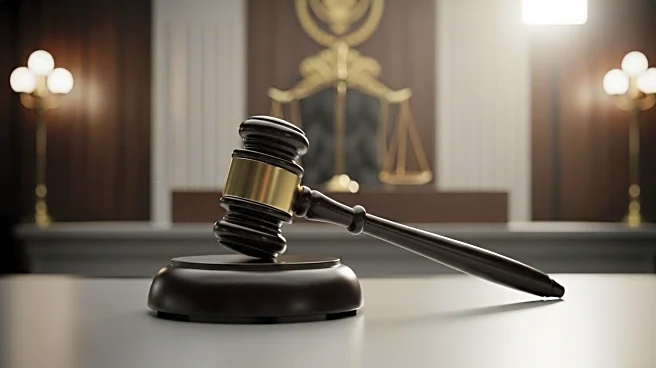What is the story about?
What's Happening?
A federal appeals court has ruled that President Trump cannot use the Alien Enemies Act to deport individuals accused of being members of a Venezuelan gang. The court's decision blocks the administration's efforts to deport these individuals from Texas, Louisiana, and Mississippi. The ruling is based on the argument that the Alien Enemies Act, a wartime law from 1798, was not intended for use against gangs during peacetime. The administration's attempt to use the act was challenged by immigrant rights lawyers, who argued it was an overreach of executive power.
Why It's Important?
The ruling represents a significant check on the executive branch's use of emergency powers to regulate immigration. It highlights the judiciary's role in interpreting historical laws and their applicability to modern contexts. The decision may influence future immigration enforcement strategies and the administration's ability to declare emergencies without judicial oversight. The case is likely to proceed to the Supreme Court, where it could set a precedent for the use of wartime laws in immigration policy.
What's Next?
The Trump administration may appeal the ruling to the full 5th Circuit or directly to the Supreme Court. The outcome of this legal battle will be closely watched, as it could have implications for the administration's broader immigration agenda. The Supreme Court's involvement may provide clarity on the limits of executive power in immigration matters.


















